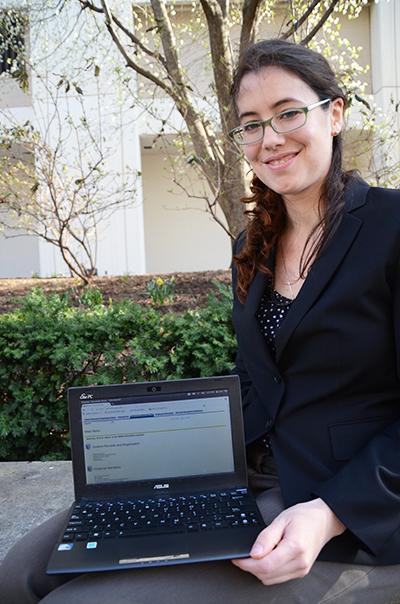Students scanning course numbers on GW’s registration page may soon be able to also sift through class syllabi before signing up, after a nearly yearlong lobbying effort by student leaders.

The Faculty Senate will vote Friday on a resolution that would ask faculty members to submit their syllabi on GW’s registration website, which students argue provides a much-needed glimpse into their workload and class focus.
“This measure ensures that people in the class really want to be there, and it encourages students to stretch themselves and take classes that maybe they wouldn’t take if it was just a course title,” said Student Association Sen. Nora Albert, MISPH-G, said.
About 90 percent of the 1,000 students surveyed by the SA academic affairs committee last year said it would be helpful to view course syllabi online while preparing to register.
Professors would also be allowed to share older versions of their syllabi, which Albert said would appease some professors who had expressed concerns about finalizing their materials and schedule weeks before classes begin.
David McAleavey, an English professor and member of the Faculty Senate executive committee, said adding a syllabus component to the University’s course website would not be a burden for faculty but could be difficult for the registrar’s staff. He said he supported the plan.
“I think it is good for us all in the sense that it is used, students will have more information,” he said. “Everyone would benefit. Students would make better choices.”
Albert said that Associate Provost and Registrar Elizabeth Amundson was “emphatic” that the registration website had the technological capability to hold syllabi and that she had supported the effort.
University spokeswoman Maralee Csellar, who responded on behalf of Amundson, said administrators would not comment on the proposal before it reached a vote.
Student leaders have already created a syllabus and test bank in the organization’s office, in which students can view old class documents when deciding what classes to take or preparing for tests. SA President Julia Susuni said the number of students requesting and sharing their syllabi this year has increased as the organization has mentioned it in more emails and on social media.
But Albert said she wanted to create a more institutionalized way to offer students their syllabi before classes began.
“While a wonderful program, the [SA] syllabus bank only works as long as the SA makes it a priority to maintain it. Moving the storage and accessibility of syllabi to the administrative side of the University makes it more sustainable over the long term,” Albert said.







